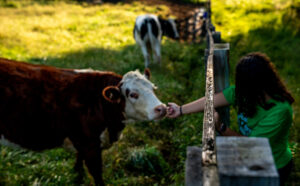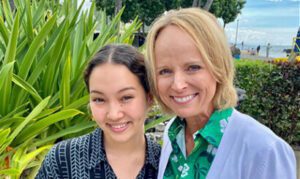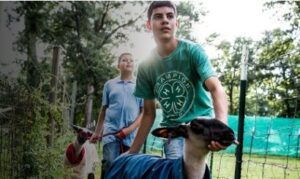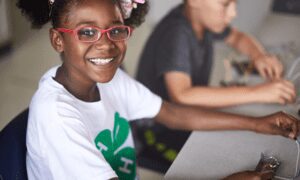Growing up in a small, rural Louisiana town surrounded by agriculture, I was reminded of the value and importance of the industry every day.
There's no doubt in my mind that I would not be the person that I am today, and in the role that I am in, had it not been for 4-H. The ability to be able to learn how to serve, the ability to learn about civic engagement, the ability to learn how to lead - the heart and the passion that is given from 4-H - have all shaped my career and who I am as a person.
After high school, I earned a bachelor's degree in industrial engineering from the University of Louisiana at Lafayette. I went on to Louisiana State University to earn a master's in environmental studies and a Ph.D. in renewable natural resources. As I pursued degrees in male-dominated fields, I was able to rely on the opportunities, skills and confidence I gained through 4-H.
When I stepped into my role at NIFA, a priority was to build a strong, innovative agency filled with some of the nation's very best experts. Our NIFA team is dedicated to strengthening education and Extension outreach efforts to help propel U.S. agriculture forward and solve some of our most pressing national issues.
During my time as NIFA director, I have had the opportunity to spend time talking with and listening to our 4-H'ers about the challenges they face and how we at NIFA can play a role in best serving them.
While we are focused on developing science, knowledge and service delivery to address the big challenges of our time, we are keenly aware of the greatest need we have - to educate and develop the next generation of scientists and leaders for agriculture and our communities.
When it comes to our priorities throughout NIFA, one of the things that we try to do is make sure everyone feels like they belong. That is particularly important with 4-H and positive youth development.
As we work together to be able to build our support for all young people, particularly those that come from underserved populations, we ask what we can do not only as USDA, not only as NIFA, but as people - people that believe in youth. What can we do to make sure we are supporting our commitment to make sure everyone belongs in 4-H?
I recognize that my ability to be where I am is because of the leaders ahead of me. I value my role, and it is a true honor to be helping pave the way for others to find their place in agriculture.
The future is bright, and I am so very encouraged by the work I see being done with our young people in 4-H. By prioritizing positive youth development, I know our young people will be poised to lead.
















